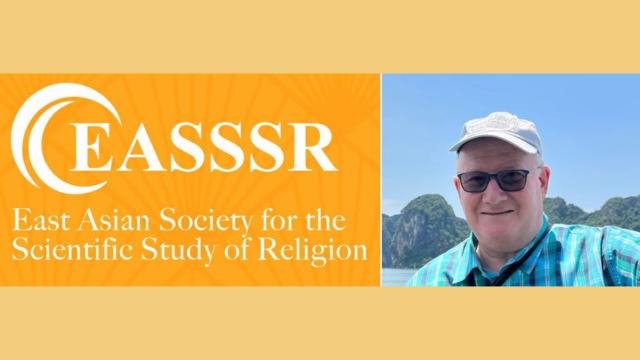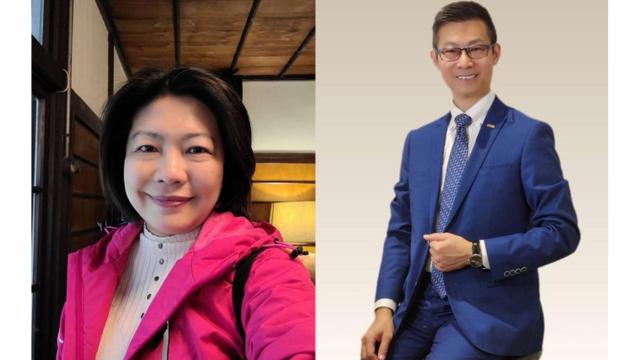At the East Asian Society for the Scientific Study of Religion yearly meeting, a panel examined the problems caused by a “science without conscience” and an unjust tax system.
by Daniela Bovolenta

The East Asian Society for the Scientific Study of Religion (EASSSR) held its fifth annual meeting, originally scheduled in Hanoi, Vietnam, and then moved online, on July 11–13, 2023. The general theme was “Religion and Science in the Global East in Context of the Fourth Industrial Revolution.”
The well-attended tenth session of the conference, on July 13, featured a discussion of “The Fourth Industrial Revolution in Taiwan: Science Without Conscience?”—a title alluding to French Renaissance writer François Rabelais’ famous saying that “science without conscience is but the ruin of the soul.”
Massimo Introvigne, an Italian sociologist who also serves as editor-in-chief of “Bitter Winter,” introduced the theme, noting that a Taiwan-born spiritual leader, Dr. Hong Tao-Tze, the Shifu (Grand Master) of Tai Ji Men, a menpai (similar to a school) of self-cultivation, qigong, and martial arts, has offered one of the most important contemporary reflections on the role of conscience.
At the same time, Introvigne said, the persecution of Tai Ji Men within the context of a politically motivated crackdown on several Taiwanese spiritual movements in 1996 and the subsequent tax harassment of the group demonstrated that Taiwan’s excellent scientific and technological development has not always been accompanied by a conscientious behavior by local bureaucrats and authorities—a case, indeed, a “science without conscience.”
The theme was further discussed by two dizi (disciples) of Tai Ji Men who have a first-hand experience of Taiwan’s “Fourth Industrial Revolution” because of their respective professional achievements. Juselia S.F. Lin is an economist and a former advisor at the Taiwan Institute of Economic Research, one of the largest think tanks of the Taiwan government. Daniel Y.C. Lee has twenty-three years of experience as a patent attorney.

Lin divided her lecture in three parts. In the first, she explored the situation of Taiwan’s economic growth after the COVID-19 pandemic. Taiwan’s growth in 2022 was of 2.43%, below the World Bank’s global projection of 3% and the lowest since 2017. Lin noted that, paradoxically, at the same time the Ministry of Finances announced that corporate profits increased significantly and that it collected 500 billion NT dollars more than expected. This contradiction, according to Lin, evidences a problem. Taiwan has a systemic situation of over-taxation and weak protection of taxpayers’ rights, which discourages foreign investments and leads some of the most talented professionals and businesspersons to move abroad, with negative effects on the economy as a whole.
In the second part of her speech, Lin presented the Tai Ji Men case as an example of how Taiwan’s dysfunctional tax system also affects spiritual organizations. Lin explained how Prosecutor Hou Kuan-Jen, who started the Tai Ji Men case in 1996, accused its Shifu and others of tax evasion. He argued that the gifts dizi gave to their Shifu were “tuition fees” of an alleged “cram school,” and as such taxable. Hou claimed to rely on an “investigation” by tax collector Shih Yueh-Sheng. Later, however, before passing away, Shih revealed that there had been no investigation and he had been ordered to lie by Prosecutor Hou. The Supreme Court in 2007 declared Tai Ji Men defendants innocent of all charges, including tax evasion. However the National Taxation Bureau continued in its attempts to enforce ill-founded tax bills, which led in 2020 to the seizure, unsuccessful auction, and confiscation of Tai Ji Men land intended for a self-cultivation center, and to widespread domestic and international protests. Lin argued that the system of giving bonuses to tax bureaucrats who, rightly or wrongly, enforce tax bills explains their “stubbornness” in the Tai Ji Men and other cases.

In the third part of her lecture, Lin presented Dr. Hong’s teachings on conscience. “Con” used as a prefix means “with” in Latin, Lin explained, and we can thus regard conscience as “science with” morality. It may seem, Lin argued, that economy and spirituality, just as science and spirituality, are two entirely separate realms. However, both Dr. Hong’s teachings and the recent situation of Taiwan show that “science without conscience” cannot lead to a harmonious economic development nor to the citizens’ happiness. Tai Ji Men proposes a “conscience-based economy,” a formula that “may seem simple,” Lin said, but whose application would optimize the distribution of resources, prevent conflicts, and guarantee human rights and justice.
Lee stated that his activity as a patent attorney places him at the core of the “Fourth Industrial Revolution,” which is generally defined as one where new technologies, including artificial intelligence and the astonishing development of the Internet, change both the corporate environment and personal lifestyles. Innovation flourishes when it is protected by an effective patent system. However, Lee said, it is not enough that a country has good patent laws and competent patent attorneys. It is also crucial that citizens and companies in general trust the government and are not harassed by corruption.
The patent laws of Taiwan, Lee reported, are generally regarded as advanced, but the fact that the number of patent application is decreasing while in most other industrial countries is increasing may be attributed to a general lack of trust in authorities and bureaucrats. These, Lee commented, are precisely the problems denounced by Juselia Lin, and epitomized by the dysfunctional situation of Taiwan’s tax system, which was evidenced by the Tai Ji Men case. What happened to Tai Ji Men revealed a lack of integrity in the public administration. It also tainted Taiwan’s image internationally.

Lee presented four suggestions, and illustrated each of them with examples taken from the Tai Ji Men case. The first calls for “transparency and openness,” which includes a public review of cases in which government bureaucrats clearly violated the law. Those who did it in the Tai Ji Men case were not punished, and Prosecutor Hou was even promoted.
Second, Lee underlined the need of “establishing effective oversight mechanisms,” based on the democratic principles of the separation of powers and Taiwan’s peculiar institution of the Control Yuan. The Tai Ji Men case demonstrated that tax bureaucrats throughout the years were allowed to elude all oversight, including by the Control Yuan.
Third, Lee said, there is a need of “combating corruption,” not only by proclaiming it but by changing laws and systems that create corruption. Lee joined Lin in arguing that the system of bonuses given to tax and enforcement officials as it presently exists in Taiwan unavoidably favors corruption, as it happened in the Tai Ji Men case.
Fourth, Lee invited to “protect citizens’ rights,” which again in a truly democratic system should be done through the separation of powers. Courts, including administrative courts, should be truly independent from the executive power. In Taiwan, administrative courts too often just slavishly follow the interpretation of tax laws by the tax bureaucrats, perpetuating the injustices of Tai Ji Men and many other cases.
While these may seem merely technical-legal suggestions, Lee in his conclusions joined Lin in calling for a return to conscience, which would guarantee both a material and a spiritual development of Taiwan, and the transition from “science and law without conscience” to “science and law with conscience.”
Source: Bitter Winter

